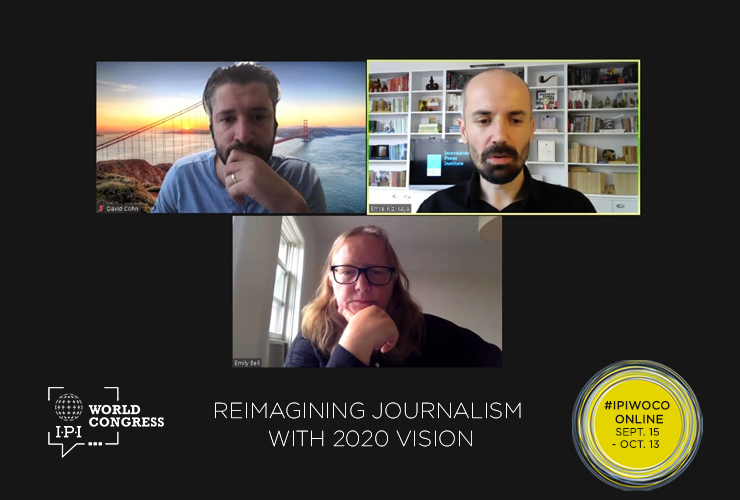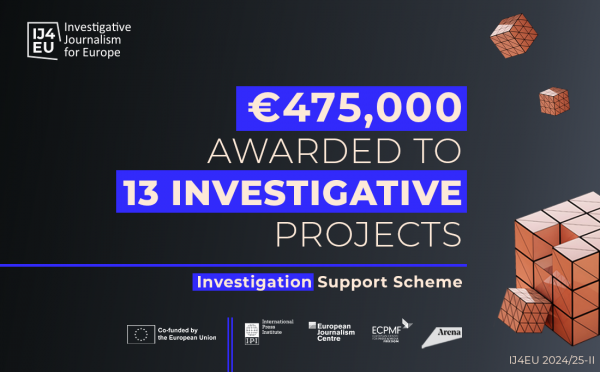Over the years big tech platforms have revolutionized the media industry by becoming a major source for distribution of news. While this has enabled access to a wider audience, media organizations have yet to figure out their relationship with the big tech companies.
“During the last five years newsrooms and big tech have become close,” Emily Bell, Director of Tow Center for Digital Journalism at Columbia University said. “Maybe they are our friends, but they suck at it at the moment, and they are all about control of the news environment.”
Bell was speaking during an expert panel discussion entitled ‘Journalism navigating the platforms’, organized on the second day of the IPI’s virtual World Congress 2020 to discuss how modern journalism is shaped by big social media platforms and the issues and challenges that come with this.
Bell, a British academic, journalist and leading thinker, commentator and strategist on digital journalism, was joined by Emre Kızılkaya, IPI Turkey National Committee Vice Chair and the project editor of journo.com.tr, a non-profit platform for the country’s next-generation journalists. The discussion was moderated by the co-founder of Subtext, David Cohn.
Bell and Kızılkaya said that in the last few decades journalism had been fundamentally re-shaped by the big digital platforms such as Facebook and Google as traditional media outlets lose advertising revenue to internet giants, who had now taken on the roles of publishers globally.
Discussing proposed new rules that would require these companies to pay media organizations for the use of their news content, the pair said the grants would actually be a fraction of what media companies should receive. Bell said the problem social media giants had created for the news industry could be solved with the relatively small amounts of money they would provide.
During the discussion, both Kızılkaya and Bell shared their views on how media organizations should take big tech companies’ money and use it. According to Bell, this will create new challenges regarding a lack of transparency.
Is #AI really being built with journalists and audiences in mind? What are the right, ethical protocols to develop AI applications? We need a honest conversation of what will work and what not in terms of news reporting @emilybell #IPIWoCo pic.twitter.com/Xwxh1R6jDS
— IPI – The Global Network for Press Freedom (@globalfreemedia) September 17, 2020
Talking about this issue in Turkey, Kızılkaya explained how the Google News Initiative (GNI) Fund supports a pro-government newspaper, Hürriyet. This puts government in the equation between big tech and journalism, as the host David Cohn pointed out.
Kızılkaya said the problem with this is related to lack of public pressure. “People do not know how their algorithms work. When there is no pressure, companies do seek for good relations with the governments, as Google and Facebook have with Turkish government. Facebook is eager to remove content when the government asks for it,” he pointed out.
Discussing the involvement of big tech companies in spreading information; “they started to set the talking points,” Bell underscored. “We need to focus on a strategy about what information design looks like, so as to separate misinformation from quality journalism. Deciding on what kind of information society we want and then pushing them for a regulation is the key for a solution”, she said.
“We need to teach young people problems with the digital media,’’ Kızılkaya added.
Where did it all go wrong? Cohn asked. Kızılkaya said it started with the founding of Google and Facebook. “When the share button was added to Facebook’s mobile phone platform, it all went crazy,” Bell added. “Collecting as much data as possible became the new norm, the quality of the publishing lost its importance.”




